![]()
 The SFFaudio Podcast #513 – Jesse, Paul Weimer, Bryan Alexander, and Evan Lampe talk about Wieland by Charles Brockden Brown.
The SFFaudio Podcast #513 – Jesse, Paul Weimer, Bryan Alexander, and Evan Lampe talk about Wieland by Charles Brockden Brown.
Talked about on today’s show:
1798, Wieland: or, The Transformation: An American Tale, first novel, the first author who got paid for a living in the United States, a weird first big novel, a weird country, a founding document is a strange book, Bryan’s thesis, connectivity issues, Bryan’s dissertation, Edgar Huntly, the doppleganger as a motif, the romantic era, British poems, not allowed to include Americans, teaching, the gimmick is sleepwalking, murder, Indian war, Skywalk: The Man Unknown To Himself, talking to Americans, in and out of fashion or focus, prefering the manly nature stuff, freakishly bizarre, Nathaniel Hawthorne, Edgar Allan Poe, Herman Melville, and H.P. Lovecraft, Supernatural Horror In Literature, James Fennimore Cooper, The Last Of The Mohicans, American muscular exceptionalism, written for women, a female protagonist, a horror story, violence against women, murder, Natty Bumppo, waking up in a cave, like Rambo, violent novels, religious violence, nature, nature worship, nature is terrifying, incinerator by divine pyrotechnics, American Writers: 100 Pages At A Time, dense, super-high level vocab, distancing from the events, the whole back half, a very strange recommendation,
Of Mrs. Radcliffe’s countless imitators, the American novelist Charles Brockden Brown stands the closest in spirit and method. Like her, he injured his creations by natural explanations; but also like her, he had an uncanny atmospheric power which gives his horrors a frightful vitality as long as they remain unexplained. He differed from her in contemptuously discarding the external Gothic paraphernalia and properties and choosing modern American scenes for his mysteries; but this repudiation did not extend to the Gothic spirit and type of incident. Brown’s novels involve some memorably frightful scenes, and excel even Mrs. Radcliffe’s in describing the operations of the perturbed mind. Edgar Huntly starts with a sleep-walker digging a grave, but is later impaired by touches of Godwinian didacticism. Ormond involves a member of a sinister secret brotherhood. That and Arthur Mervyn both describe the plague of yellow fever, which the author had witnessed in Philadelphia and New York. But Brown’s most famous book is Wieland; or, The Transformation (1798), in which a Pennsylvania German, engulfed by a wave of religious fanaticism, hears voices and slays his wife and children as a sacrifice. His sister Clara, who tells the story, narrowly escapes. The scene, laid at the woodland estate of Mittingen on the Schuylkill’s remote reaches, is drawn with extreme vividness; and the terrors of Clara, beset by spectral tones, gathering fears, and the sound of strange footsteps in the lonely house, are all shaped with truly artistic force. In the end a lame ventriloquial explanation is offered, but the atmosphere is genuine while it lasts. Carwin, the malign ventriloquist, is a typical villain of the Manfred or Montoni type.
is the next book about x-ray specs, the Binding of Isaac, based on a true story in upstate New York, your local history, Washington Irving, Anthony Boucher’s They Bite, the cannibalism aspect, religious fanaticism, Carwin is a bit villainous, a thing going on with the maid, a genealogy of religious madness, an unreliable narrator, quite unhinged, a very Lovecraftian theme, inheriting the sins of the father, forbidden knowledge, ancient French protestants, this sounds like Lovecraft, half buried in dust and rubbish, his eyes were not confined, seek and you shall find, connection to madness, looking for her father’s old writings, Carwin in her closet, don’t read the book we’ll interpret it for you, teach the Indians how to be good Christians, his own personal religion, twice a day without fail, craziness and religion, really strange, early American history, the American Revolution, The Peopling Of British North America by Bernard Bailyn, America as a Marchland, a marquis, slavery, new religious movements, cults, no established church, a weak echo, Netflix’s Wild Wild Country, the Albigensians, not having a positive view of religion, religious frenzy: the end, a more traditional religious education, an unhinged freethinking frontier religion, the argument of religious authorities, Augustine, the best thing for humans is a good theocracy, Sunday School, mandatory belief, a Comics Code Authority Stamp, if you don’t like it I won’t write any more, William Godwin’s Things as They Are; or, The Adventures of Caleb Williams, anarchism, what’s the lesson here besides beware of ventriloquists, she isn’t as naive as she sometimes seems to be, a transformation from the brother into Carwin, a rustic friendly atmosphere, science and astronomy, traumatized by nightmares, a nightmare story, her savior is a rapist, I said I was going to rape you because it seemed best at the time, it feels so gothic, throw your voice to get out of dangerous situations, throw your voice to the garbage can behind your muggers, that’s bullshit, The Secret Of Ventriloquism by John Padgett, written for a Thomas Ligotti fansite, 1943, “Benders”, the Kansas serial killer benders, that father was insane, god was talking to him, so full of coincidence, Clara is not reliable, a sign of mental illness, the case that inspired Wieland, we could almost diagnose, showing up at a neighbor’s house naked, not just genetics but also disease, Guy de Maupassant, Who Knows?, The Horla, burn the house down, the brother is definitely insane, the father has been insane for a long time, voices attributed to a stranger with Spanish characteristics, Carmilla by J. Sheridan Le Fanu, charms for protection against vampires, a castle in an American forest, a temple, mysterious stranger, the father’s death and spontaneous combustion, a state of insensibility, his imperfect account, bearing a lamp, a blow from a heavy club, an imperfect tale, half the truth has been suppressed, how it ends, the divine ruler, the religious vs. the rational explanation, the boyfriend, the uncle, a professional, the voices, the original kills in New York, struck by lightning, both natural and supernatural, a sound up on the temple, a pistol discharged, a blazing light, a very striking image, a cloud impregnated with light, a burning bush, ball lightning, naked and scorched and bruised, clothes removed and reduced to ashes, never explained, so devout god visited him and he saw god’s sideboob, Poe is dealing with Radcliffe 50 years later, what’s going on up front, Mulder and Scully, crucial to the Gothic, Gothic explicae, The Monk by Matthew Gregory Lewis, Scooby-Doo, the final chapter, making sense of real phenomenon, lets find out what it is, H.G. Wells’ The Invisible Man, the temptation of the Ring of Gyges story, a temptation to intervene, always rationalizing, past tense, for those people who want to know what happened to my family, this is her Stormy Daniels book, an essay in Vanity Fair three years later, no one would really write this that way, written for our benefit this way, putting it in the best light, I was paying her, what else is going on, the children, the maids, an upper class family, playing musics and discussing philosophy, suffering from syphilis, paranoia, hearing voices, a psychotic break, Lovecraft’s dad, a gang of men are raping my wife, went to the hospital, a hushing up, can this be rationalized without modern disease theory and modern psychology, In Cold Blood, so familiar, Gary Cole, Fatal Vision, a gang of hippies, Charles Manson, threat of the week, a narcissistic sociopath, Pleyel’s experience, “drifter”, he’s the Rasputin of this mess, lets have a secret meeting, no you idiot, don’t do it!, maybe I should, he’s hiding in your closet, let’s split up, a horror movie trope, drawn to the flame, the implications towards incest, transformed into a Spaniard, Carwin, this non-Spanish crypto-Spanish dude, some guy who doesn’t like me in Ireland, the British Gothic tradition, the Catholic South is very sexual, Othello, every Radcliffe novel, a ritual thing to do, a classic geographical imagination, part-time Spanish part-time English, Germans and Scotch-Irish and Jews, an inherited move, what Jeffrey MacDonald told the investigators, high heeled boots, “Acid is groovy, kill the pigs.”, the American Revolution angle, hostile to hierarchies and institutions, the corruption of old Europe, Saxony, Chapter 5, the good king, the Prussians, the horrors of war, which eventually happens, Thomas Paine, views on marriage, gender politics, the final scene, no general critique of institutions, a normal life, happiness in France, a Lord in Saxony, The Rats In The Walls, why they moved to the U.S., the Delapore family was murdered by one member and then praised by the neighborhood, the secret of the family was passed down, his family seat, the whole cycle of horror, Sir Arthur Conan Doyle’s The Hound Of The Baskervilles, the Canadian who comes into take the Baskerville estate, returning to Europe where the sins were ingrained in the family name, start a religion afresh, principled and thoughtful, rigid thinking, too rational, what could have caused this?, a pair of aunts who married a pair of brothers, hints of incest, she’s expecting her brother there, “that’s weird, man”, emotion and passion vs. rationality, a movement driven in part by the Enlightenment, violent, slavery, siding with reason, mental illness, the scene of this contest, a duel, a malignant figure, I leave you to moralize on this tale, Robinson Crusoe goes hunting in Spain, a problem with pagination, a double-tongued deceiver, if only they had gone to church, you gotta think this problem through, a Kantian answer, an 18th century chestnut, the human brain is a pretty good machine until the passions wreck the place, frailty, Robespierre and the Goddess of Reason, The Dunwich Horror, Providence by Alan Moore and Jacen Burrows, who is he talking to, these are your idols, Hyperion by Dan Simmons, a horror book, you don’t wanna go that way, one take on America, American Culture 101, the spontaneous combustion, horror movie scenes, don’t do it!, don’t go down in the basement, hewing trees, where you keep the monsters (the basement), most of the horror takes place upstairs, closets, when did basements become popular?, cellar, I lurked through the day, a trap door, a storm cellar, so strange, so weird, so foundational, the opposite of James Fenimore Cooper, William Faulkner, Pierre by Herman Melville, all the heads we’re driving over, Melville’s gone nuts, overblown writing for 200 pages, frustration, speaking to something that everybody knew about then, why was Poe obsessing about premature burial?, fake news, preserved like the bones of a dinosaur, historical criticism, a Gothic dream of factionalism, the Civil War, Nathaniel Hawthorne, The House Of The Seven Gables, Young Goodman Brown, The Minister’s Black Veil, disconnected from religion but surrounded by people who are connected, swimming with the church team, freezing rain, Quaker meetings, another set of friends, the Philosophical Society, equal in extent, very much of the enlightenment, a biloquist, all the voices were Mel Blanc, digging graves in your sleep, astral projection, The Facts In The Case Of M. Valdemar, the biggest hoaxer of them all, Channel Zero, creepy pasta, Candle Cove, the tooth monster, about grief, a mobile haunted house, almost perfect, uncanny, a rundown Rustbelt city, modern folklore, a local legend, ventriloquism, that’s so weird, sleepwalking, Rutger Hauer and very meaty, infecting my dreams.
Posted by Jesse Willis


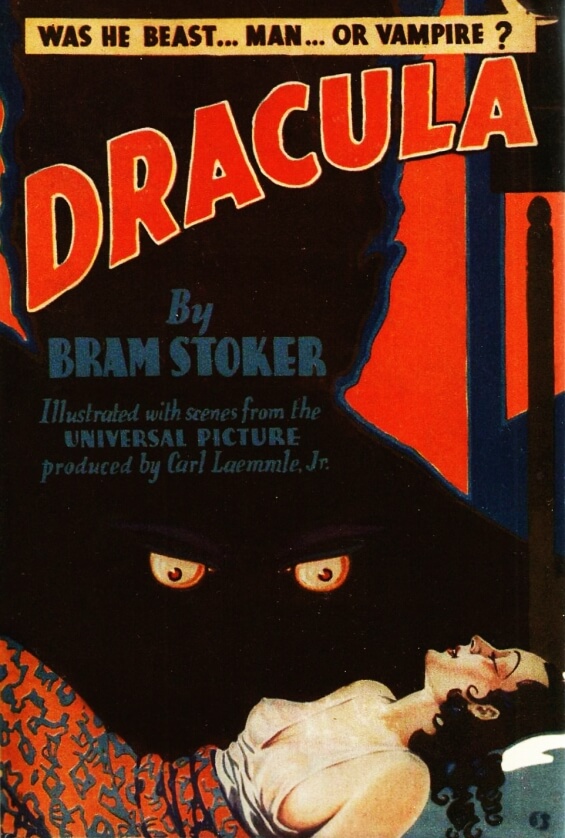
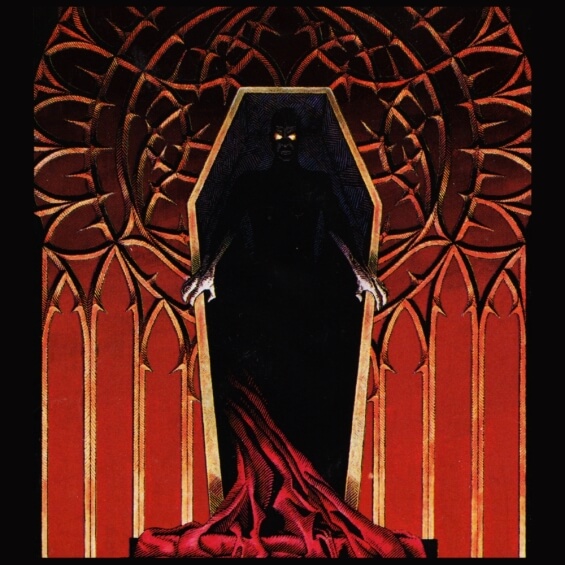
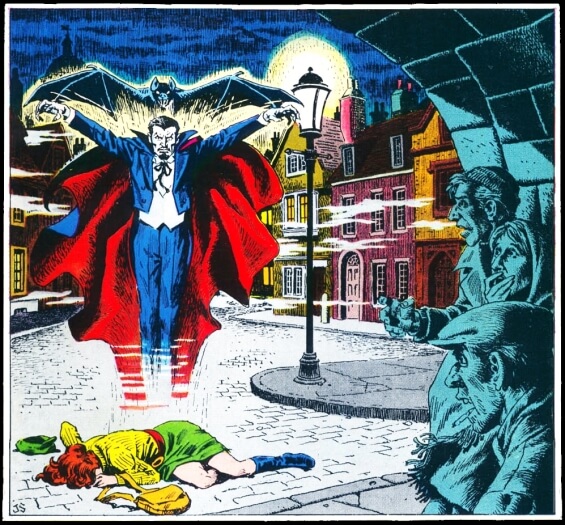
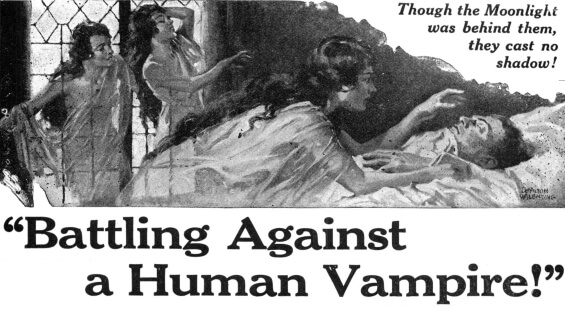


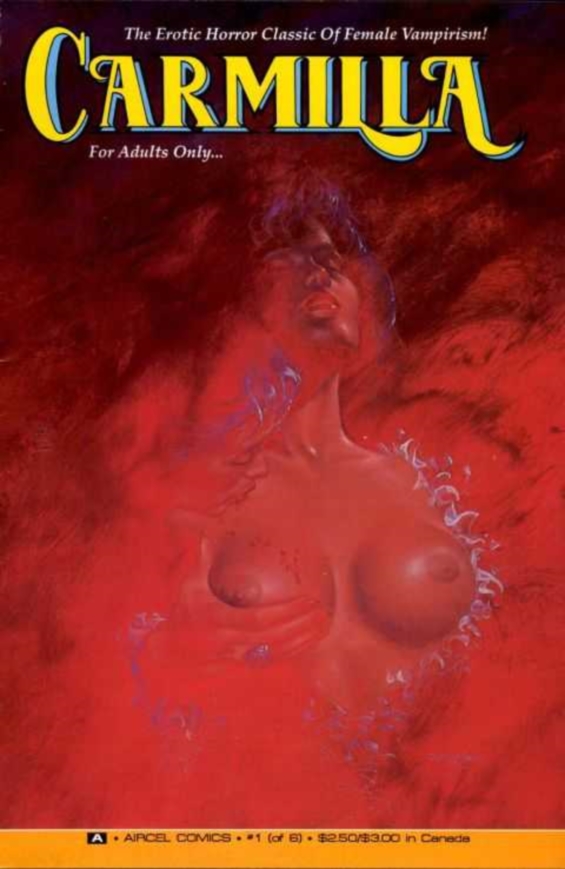
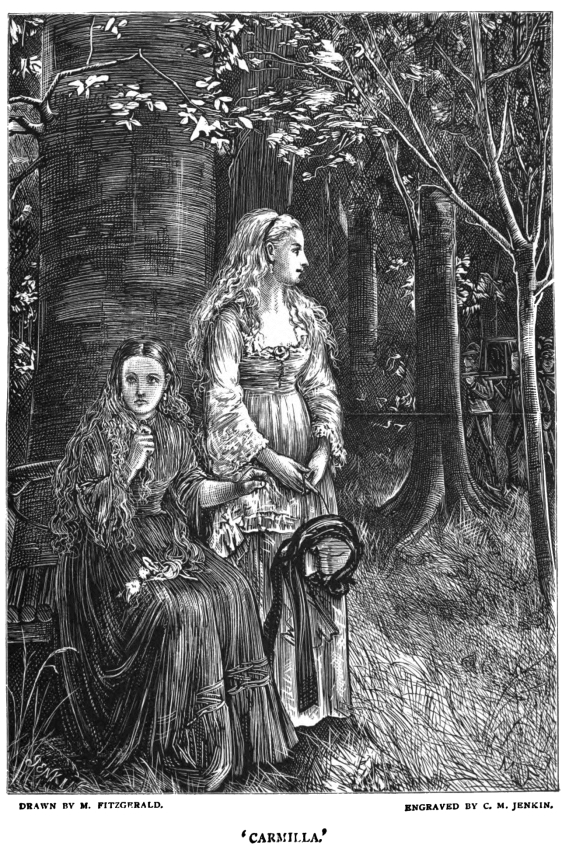
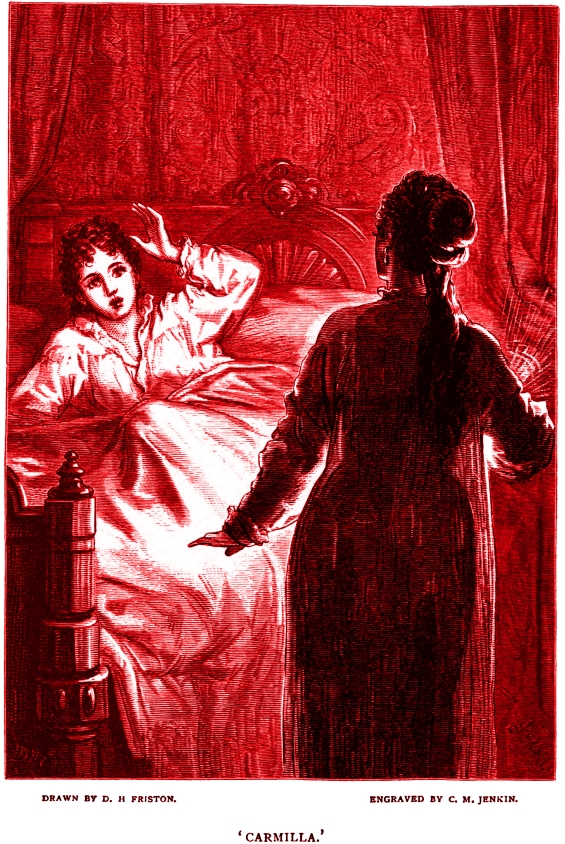
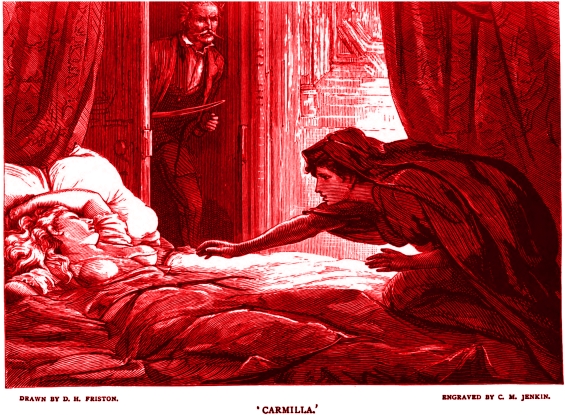
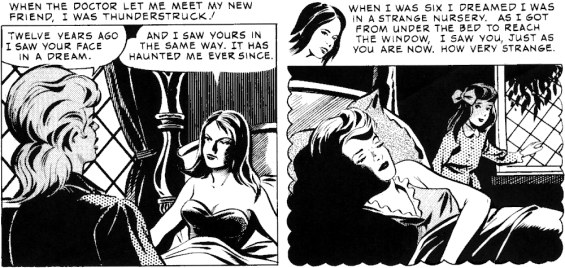
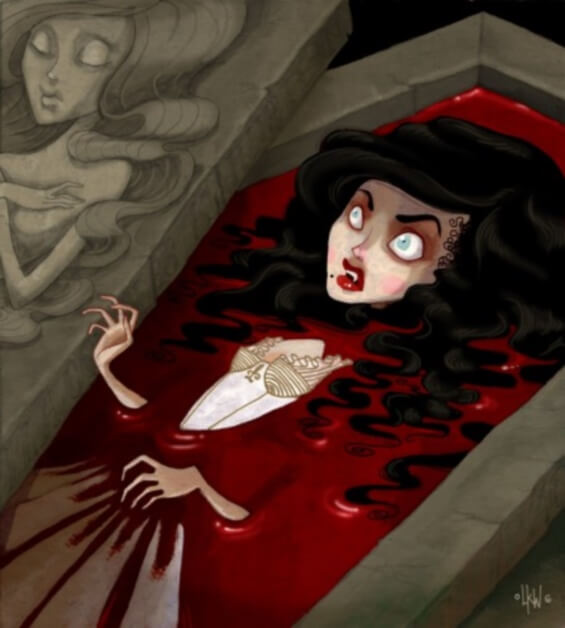


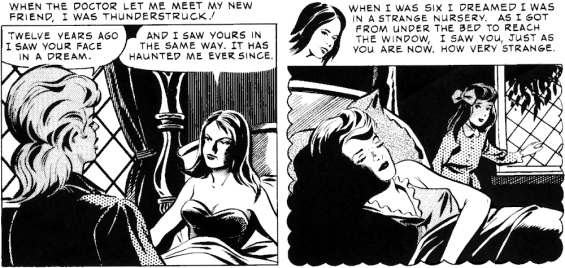
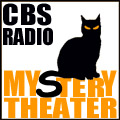 CBSRMT #0318 – Carmilla
CBSRMT #0318 – Carmilla